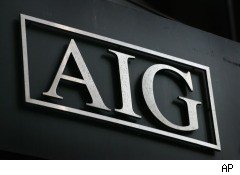 Harvey Golub, a former head of American Express (AXP) and highly regarded public company board member, has resigned as AIG (AIG) chairman. There have been rumors for over a week that he has clashed with AIG CEO Robert Benmosche.
Harvey Golub, a former head of American Express (AXP) and highly regarded public company board member, has resigned as AIG (AIG) chairman. There have been rumors for over a week that he has clashed with AIG CEO Robert Benmosche.
“I believe it is easier to replace a chairman than a CEO,” Golub wrote in his resignation letter. Benmosche has been so fickle about his own tenure at AIG that the board may need to find a new CEO as well. The board immediately replaced Golub with another well-regarded executive, Steve Miller. Miller has been the head of Delhi and is considered a “turnaround artist.”
Golub could hardly have been a more appropriate chairman for AIG. He headed the boards of Campbell Soup and Reader’s Digest. But disputes over matters such as the future of AIG’s Asian unit AIA apparently caused the rift. The original plan for the business was to sell it to Prudential UK. But that fell apart when Prudential asked for a lower price. It now appears likely there will be an AIA IPO.
Trouble in the Boardroom
Boardroom unrest seems to have grown in recent months — often because of unusual circumstances. The job of BP (BP) CEO Tony Hayward is clearly on the line. So is that of the company’s chairman Carl-Henric Svanberg. The BP board must be debating whether it’s wise to turn over top management in the middle of a crisis.
Earlier this week, the CEO of Paychex (PAYX), Jonathan Judge, resigned, apparently because of an uneasy relationship with the founder B. Thomas Golisano. It would not be the first time an outside CEO butted heads with a powerful former chief.
The head of H&R Block (HRB) left suddenly last week. Russell Smyth had been at the company for two years. In addition, the firm’s CFO and general counsel left as well, raising the question of whether the board forced the group out because of dissatisfaction with the company’s turnaround. The tax preparation company recently fired 400 people as part of another downsizing.
Other heads rolled last week as well. W.P. Carey & Co (WPC) CEO Gordon DuGan stepped down, apparently because of friction with the firm’s powerful chairman, William Polk Carey, who ran the board with an iron hand, according to the
The loss of a CEO is almost always unsettling for both employees and investors. But perhaps these recent departures are another sign that the recession is now over. While a changing of the guard may be too risky at the bottom of a recession, in a recovering economy, it could be time for a shake up. Or maybe these CEOs just couldn’t get along with their boards or strong founders.


Leave a Reply